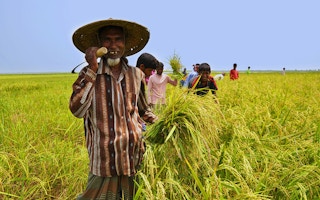Dutch bank Rabobank and U.N. Environment have announced a $1 billion programme to finance new ways of farming that curb emissions, restore the land and protect forests.
Agriculture produces about 24 per cent of planet-warming greenhouse gas emissions, and those emissions are expected to rise along with the global population.
“
Our aim is to substantially increase the quality of existing arable land while protecting biodiversity and reducing climate change worldwide,
Wiebe Draijer, CEO, Rabobank
Farming needs to change if the world is to stick to promises made in the 2015 Paris climate deal and keep temperature rises no more than 2 degrees Celsius above pre-industrial levels, said Rabobank’s CEO Wiebe Draijer.
“Our aim is to substantially increase the quality of existing arable land while protecting biodiversity and reducing climate change worldwide,” said Draijer.
Farmers and food firms need incentives to protect forests and restore land that has lost its fertility, Draijer said.
The programme, announced late on Tuesday, will finance sustainable farming, as well as food processing and trade companies that protect forest, restore land and involve smallholder farmers.
“We want the entire finance industry to change their agricultural lending, away from deforestation and towards integrated landscapes, which provide good jobs, protect biodiversity, and are good for the climate,” said Erik Solheim, head of U.N. Environment.
The new programme will begin in Brazil and Indonesia.
This story was published with permission from Thomson Reuters Foundation, the charitable arm of Thomson Reuters, that covers humanitarian news, women’s rights, trafficking, property rights, climate change and resilience. Visit http://news.trust.org)










